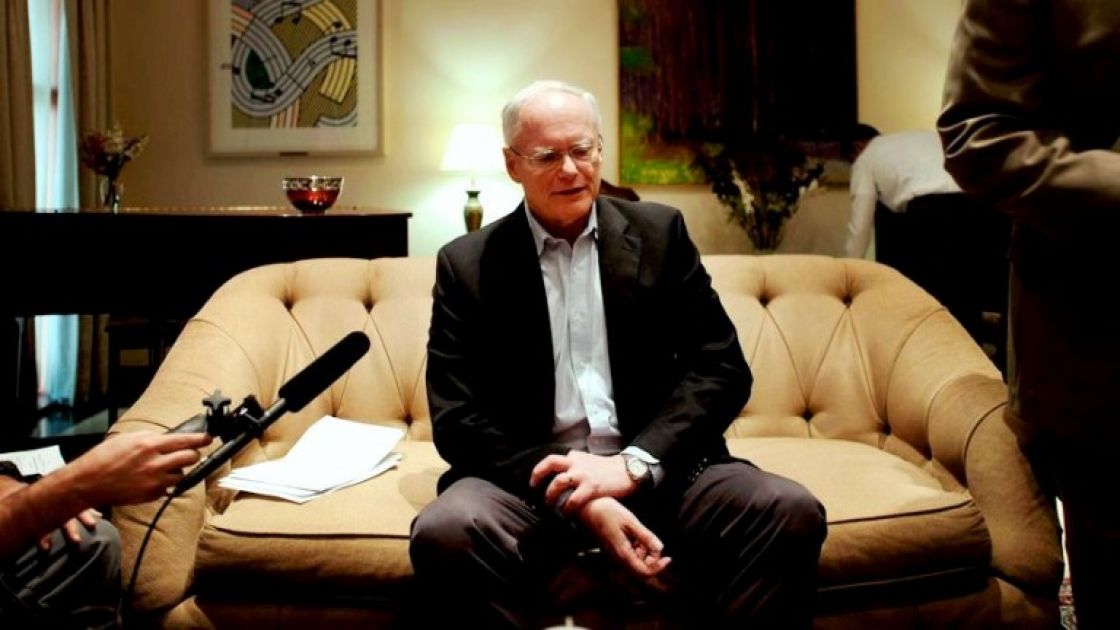- Articles
- Posted
In Light of Jeffrey’s Remarks, is Washington an Ally of Turkey or the Kurds?
James Jeffrey, the former US envoy to Syria who resigned from his post a few days ago, made a series of “closing statements” during an interview with Defense One last Thursday, November 12, about the US’ role in Syria, in the past and what is expected in the future.
An article in the latest issue of Kassioun entitled Jeffrey Wants the “Quagmire Mission” to Go on… “Stalemate is Stability”, dealt with a significant part of those statements.
In this article we look specifically at those of his statements relating to Syrian Kurds and the nature of the relationship with them. We start by listing what he said about this issue in the interview.
“Nobody in Washington ever gave the Kurds a military guarantee against Turkey…. I cannot put my finger on it, [but] every Kurdish leader I know thinks that he or she was given such a guarantee by people [US troops] in the field, and that had an impact on how they behaved including how they behaved vis-a-vis the Turks. So it was a very complicated political mess.”
It is not difficult to conclude that what Jeffrey means by “a very complicated political mess” is precisely the Turkish aggression on northeastern Syria on October 9, 2019, which took place under the name of “Peace Spring”, which led to Turkey’s occupation of additional areas in Syria. Those areas which are exactly the ones that the Americans withdrew from only three days before the start of the aggression (on October 6), and within the process of receiving and handing over between the two countries, but through a battle fueled mainly by Syrian fighters on both sides. This “mess” could have extended well beyond that had it not been for the Russian-Turkish agreement signed between the presidents of the two countries in Sochi on the 22nd of the same month.
The Facts Speak…
Before proceeding any further in reading the meanings of Jeffrey’s words, it should be noted that the “mess” that Jeffrey is talking about is not an unexpected result of US policy in Syria, rather it is the exact desired result. Through the false US implication by standing by all the warring parties at the same time, it is effectively standing against all of them and with the ongoing war among them. Before his last interview referred to here, there was no clearer sign (other than actual behavior, of course) except for Jeffrey’s own statements about his job of turning Syria into a quagmire.
In the last interview, Jeffrey puts things in the most crude and insolent form when he acknowledges that the US policy in Syria is not concerned with making any change, but rather it is precisely: “Stalemate is stability”. In other words, what is required is continued attrition and not reaching a solution.
This phrase alone is sufficient to explain US behavior towards the Kurds and Turks alike, but also towards al-Nusra, the Syrian regime, and the various forces present on the Syrian arena.
The Objectives of the Statements
Nevertheless, the signal that Jeffrey makes regarding the Kurds, we believe carries with it the following objectives:
- Committing more pressure on Syrian Democratic Forces (SDF) and Syrian Democratic Council (SDC) by explicitly hinting again that there are no military guarantees with regards to Turkey, which means that the US will not stand in the way of a new Turkish invasion, especially since Turkey does not stop describing SDF as terrorists, and not a week passes without its officials making threats of a new invasion of the region.
- The main goal of the pressure is to get through what Washington is seeking in the northeast, which is to destroy the political and military power center in the hands of SDF / SDC, to be replaced by three or four conflicting military and political power centers: 1) SDF itself after reducing its influence; 2) The Peshmerga (through American conditions imposed on the Kurdish-Kurdish dialogue; 3) Irrelevant figures that are being exaggerated and installed as representatives of the Arabs in the northeast (in this context, we recall Jeffrey’s deputy receiving Riyadh Hijab in a two-day meeting in Washington, although the latter explicitly declares his desire to militarily eliminate SDF, “America’s ally” as some describe it); 4) The Turks themselves, including the areas they control and the Syrian forces that work under their control.
- With three or four conflicting centers in a small area, the Americans can guarantee the continuation of the quagmire in the event they withdraw (which might happen before too long), and with the presence of these discordant centers the door can be opened to a number of conflicts of the type: Kurdish-Kurdish, Arab-Kurdish, Kurdish-Turkish, Syrian-Syrian, and Syrian-Turkish.
- within the process of establishing the “stalemate”, what should not be forgotten is that a policy of this kind, if the parties concerned are entrapped by it, would create additional contradictions among the Astana troika, and that was Jeffrey’s first mission all along.
In general, what is confirmed not only by the statements, but also by actual policies, is that Washington is not an ally of any of the sides operating in the Syrian arena (except for the Zionist entity, of course). Rather, it is in fact an enemy of all of them, and its management of the alliance and discord process is based on one established rule: “The war of everyone against everyone”, to perpetuate the “quagmire”, and to perpetuate the “stalemate”, to achieve that kind of “stability” from the American point of view, which means precisely instability from the point of view of the region and its peoples. Moreover, that means the attrition of rising international opponents to prevent them from reaching stability that fully reveals the new international balances, in which the dollar will be left outside its upcoming calculations.



 Saad Saeb
Saad Saeb